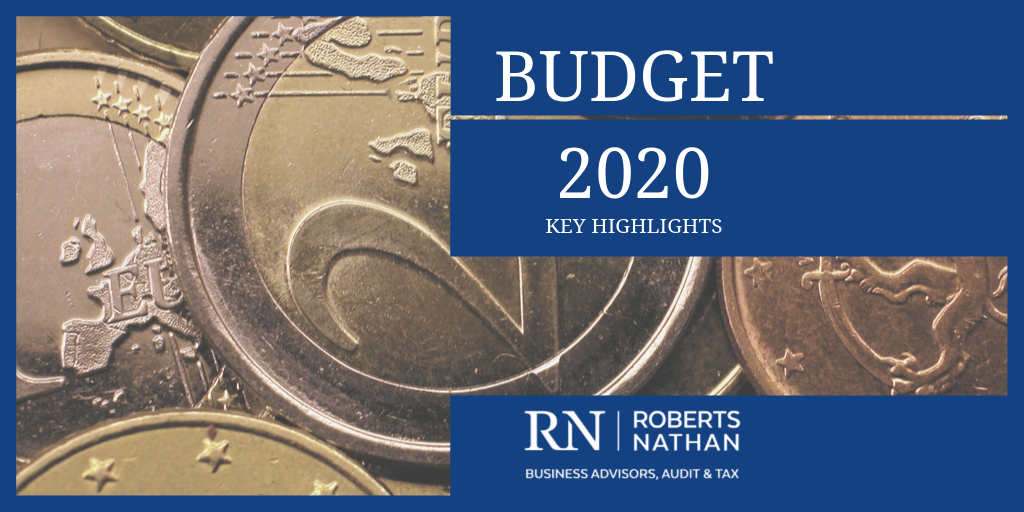News
Some Highlights of Budget 2020

Minister for Finance Paschal Donohoe delivered his Budget 2020 speech on Tuesday which included a €2.9bn budget day package. Also confirmed is a €1.2bn Brexit-proof fund.
Whether you are for or against it, carbon tax will be the most controversial element of the package and a talking point for many. Below we have outlined the main tax highlights of Budget 2020.
Personal Taxes
- Income tax rates and bands and the USC rates and bands remain unchanged. The Minister for Finance did not want to commit to personal tax cuts in the lead up to a no-deal Brexit.
- The Home carer credit has increased to €1,600 and the Earned income credit has increased to €1,500.
- The Group A threshold for CAT has increased from €320,000 to €335,000. The increased threshold applies to gifts or inheritances received on or after 9 October 2019.
Payroll Taxes
- There was no mention of employer’s PRSI however Budget 2019 announced this would increase from 10.95% to 11.05% from 1 January 2020. Employer’s PRSI has steadily increased over the last few years and represents a significant cost to businesses.
- SARP relief and the Foreign Earnings Deduction have been extended to 31 December 2022.
- In 2018, the Government implemented a 0% BIK rate for electric vehicles subject to a value limit of €50,000 in comparison to a rate of 30% of the car’s original market value for non-electric vehicles. This initiative has been extended to 2022.
Business Taxes
The R&D tax credit regime has been amended so that it is more accessible to micro and small companies in Ireland. These amendments include the following:
- An increase in the credit from 25% to 30%.
- The ability to claim the credit on qualifying expenditure before the company commences trading. It should be noted that any credit claimed in this period can only be offset against VAT and payroll liabilities.
- An increase in the outsourcing limit applicable to third level institutes from 5% to 15%.
- Farm restructuring relief, a capital gains tax relief due to expire at the end of this year, has been extended to 31 December 2022.
- Several amendments will be made to the KEEP scheme to incentivise take-up in the scheme. This includes a change in the definition of a qualifying company so that the scheme applies to group structures and a change in the definition of a qualifying individual so that it applies to part-time and flexible employees.
- EII relief, an income tax relief for individuals who invest funds in certain companies, will also undergo changes which apply from yesterday. The amendments will allow individuals to claim full relief in the year of investment and the annual investment limit will increase from €150,000 to €250,000.
- The Minister for Finance announced there will be a significant overhaul to the DWT regime. From 1 January 2021, real-time date collected under the new PAYE Modernisation regime will be used to create a personalised rate of DWT on distributions received by individuals. In the meantime, an increase in the DWT rate from 20% to 25% will apply from 1 January 2020.
Indirect Taxes
- Carbon tax will increase by €6 to €26 per tonne which equates to approximately 2 cent per litre in the price of fuel for consumers. This increase applies from 9 October 2019.
- Carbon tax on other fuels is delayed until May 2020. Any increase in funds collected from this carbon tax will be ring-fenced to fund climate action measures.
Property & Construction
- The rate of stamp duty on non-residential property will increase from 6% to 7.5% effective from 9 October 2019. Limited transitional arrangements will apply to instruments executed before 1 January 2020 where a binding contract existed prior to 9 October 2019.
- The Help-to-Buy scheme remains unchanged however it has been extended to 31 December 2021.
- The REIT regime has been amended so that the level of tax collected on property gains by REITS is increased.
Are you concerned about Budget 2020 and the affect it will have on your business?
Please contact us to discuss how we can assist you.
